Over the past 30 years, Australians' household debt has increased.
According to the Reserve Bank of Australia, our household debt-to-income ratio (calculated by taking your total debt and dividing it by your annual income) has risen from 70 per cent in the early 1990s to around 190 per cent today. With numbers like this, it's understandable that you might feel like you'll never get out of debt. Changing your thinking around your finances, however, and learning how to make sure your money is working for you will reap great rewards. Below, we've outlined a few ways you can create savings while paying off debt.
Review your debt and determine what to pay off first
When you're assessing your financial position, you first need to look at your different types of debt. The most common types of debt are credit card debt, high-interest personal loans, vehicle financing, HECS-HELP loans, and mortgages. You should focus on paying off high-interest debts first as you'll generally save the most money compared to just making the minimum repayments. The longer interest accrues on a balance, the more you'll end up paying. Continue to make the minimum repayments on all your debts, but focus any extra money you have to paying off the high-interest debts as a priority.
Review your household budget
If you don't have a household budget, review your bank statements for the last few months and put everything into a spreadsheet. Your budget should include fixed expenses (mortgage payments or rent, bills and transport) and the money you'll set aside for other expenses.
Eliminate unnecessary spending
When you review your spending, you'll probably find unnecessary transactions. Identifying this unnecessary spending and adding it up will show you how much money you could put towards saving. Of course, you don't want to feel like you're depriving yourself and a treat each week is fine. So, set aside a small portion of your money to enjoy yourself while still living within your means.
Pay yourself first
Paying yourself first was a principle made popular in recent years in Robert Kiyosaki's book, 'Rich Dad, Poor Dad'. To pay yourself first, set up an automatic savings transfer to move 10% of your income straight to savings each time income hits your bank account. Once you've built up some savings, you could invest this money into a balanced portfolio which will grow over time. A balanced portfolio is an investment in both stocks and bonds. This strategy aims to take advantage of stock market growth with the support of bonds to alleviate downturns in the market.
Use credit cards carefully
Make sure you're using your credit card carefully and if you can't pay it off in full each month, consider switching to a low rate credit card.
Learn more about our Low Rate Credit Card
Reducing your mortgage
After you've paid off loans with a higher interest rate, focus on reducing your mortgage. You can do this by placing your savings into an offset account linked to your mortgage, or if your loan allows redraw, by making additional payments direct to your home loan. Using redraw you can always access your savings if you need them.
Pocket change savings apps
Setting up an account with a micro-investing app is another great way to save. Apps like Raiz round up your spending on purchases to the nearest dollar. It then invests your balance based on your risk appetite.
Consistent small actions over time lead to big results
The hard thing about debt is you often feel like you'll never be in a comfortable financial position. It's the small, consistent actions over time; however, that will pay great dividends in the future. Everyone's financial situation is different, so make sure you speak to a financial adviser to discuss your unique situation. To ensure our customers have access to appropriate financial advice we have formed a relationship with Alliance Wealth. For more information visit us in branch or contact our Customer Care team on 1300 138 831
This information has been provided as general advice. We have not considered your financial circumstances, needs or objectives. You should consider the appropriateness of the advice. You should obtain and consider the relevant Product Disclosure Statement (PDS) and seek the assistance of an authorised financial adviser before making any decision regarding any products or strategies mentioned in this communication. Whilst all care has been taken in the preparation of this material, it is based on our understanding of current regulatory requirements and laws at the publication date. As these laws are subject to change you should talk to an authorised adviser for the most up-to-date information. Some content reproduced with permission. No warranty is given in respect of the information provided and accordingly neither Alliance Wealth Pty Ltd not its related entities, employees or representatives accepts responsibility for any loss suffered by any person arising from reliance on this information. Corporate Authorised Representative No 1234989 of Alliance Wealth Pty Ltd AFSL 449221 ABN 93 161 647 007.
Credit Representative No 480095 of Centrepoint Lending Solutions Pty Ltd ACL 377711 ABN 40 100 947 804 | www.centrepointalliance.com.au/AW
Auswide Bank Ltd may refer you to Alliance Wealth Pty Ltd AFSL 449221 ABN 93 161 647 007 ('Alliance Wealth') for financial advice. For full details of our relationship with Alliance Wealth and its Corporate Authorised Representative, Financial Advice Matters Group Pty Ltd, please visit www.auswidebank.com.au/financialadvice
Published: Friday, 24 Jun 2022

